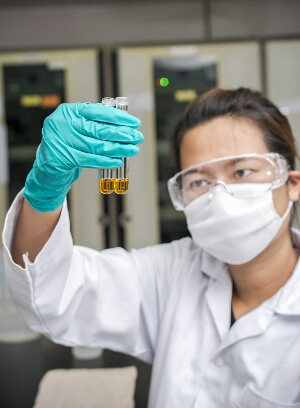Medicines produced by pharmaceutical and biotech manufacturers are manufactured in many ways. One particular type of treatment, cell therapy, is defined as:
…the transplantation of human or animal cells to replace or repair damaged tissue.
From a manufacturing perspective, each therapeutic batch must be perfect the first time — because each batch is produced for a specific patient. The next unique batch, for the next unique patient, must be just as perfect as the previous batch.
I caught up with Emerson’s Bob Schiros about how manufacturers in the Life Sciences industry are implementing technologies and workflows to achieve this level of perfection. He described four important challenges that must be addressed.The first is to improve the chain of identity to assure every point of identity from sample retrieval to in-process manipulations to testing to therapy delivery are correct and verified. The second challenge is to significantly reduce errors and deviations typically caused by manual procedures.
The third big challenge is to simplify and streamline documentation and maintain a paperless manufacturing process. The final major challenge is to avoid process exceptions before they occur, or if they do, identify and resolve them before it impacts the batch.
Let’s look at the first challenge around chain of identity in more detail and save the other challenges for future posts. It’s critical that the process materials be tracked as a batch moves from receipt of the patient’s cells to cell expansion through the activation process to final formulation and delivery to the patient.
Across the chain of identity, the process must be documented. Records include receipt of patient materials, sample tracking, the cell growth process, and patient therapy delivery. Documentation includes activities related to the process, such as who took what actions and when. These manual tasks can be streamlined with tools that help ensure the batch is processed according to the batch recipe.
 The Syncade manufacturing execution system (MES) can help implement and confirm the chain of identity by ensuring proper procedures, recording material barcodes from point-of-receipt through the complete manufacturing process, and automatically documenting the production process to provide a complete record to show proper chain of identity.
The Syncade manufacturing execution system (MES) can help implement and confirm the chain of identity by ensuring proper procedures, recording material barcodes from point-of-receipt through the complete manufacturing process, and automatically documenting the production process to provide a complete record to show proper chain of identity.
Proper procedures are assured by using Syncade MES automated workflows to prevent operators from deviating from the validated process and ensuring that the right actions are performed on the right batch and properly recorded against the right batch record. Electronic signatures added at points in the workflow track and document approved activities for proof of proper chain of identity.
By collecting barcodes from materials used in the production process, an accurate material genealogy is collected at each stage of production. Accuracy is enforced because the process cannot continue without the proper barcode entry.
By automating the workflows, collecting and verifying information as the production process progresses, and helping the operations staff perform the right action at the right time, cell therapeutics manufacturers can better manage the chain of identity and manufacture the right cell therapy medicine for the right patient.
You can connect and interact with other manufacturing execution, pharmaceutical and biotech experts in Operations Management and Life Sciences groups in the Emerson Exchange 365 community.





